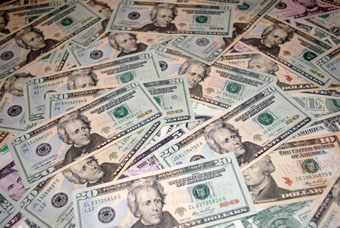
The Case for Better Banking Regulation
| published Saturday, November 23, 2013 |
By Earl H. Perkins, Thursday Review Features Editor
JP Morgan Chase has agreed to pay a record $13 billion settlement, following multiple investigations concerning toxic mortgage investments, including those that helped trigger the 2008 financial crisis, a meltdown which included the collapse of Lehman Brothers and the near implosion of insurance giant AIG.
The federal government needs to get involved and follow every dollar the nation's largest bank has touched in the last couple decades. Big banks acquire smaller institutions and then sell off the garbage, hoping some sucker will come along and think they're making a good investment. These huge lending institutions hire brilliant people and charge them with the task of masking bad deals into potential windfalls. The geniuses went to top-shelf schools and earned degrees in Masters of Business Administration, which means they do whatever it takes to turn a profit for the company.
It doesn't matter whether millions of people are financially crippled for all eternity and turned out into the streets, so long as those in charge are able to garner a fat salary and bonus for manipulating numbers. This has been going on for generations, but times and people have changed, with the biggest change being larger profits. Hopefully, with the advent of computers, better paper trails and whistleblowers, we will someday know exactly what happened. The reason I say these organizations should be turned inside out is because these machinations have been orchestrated for decades, and much of the money is being funneled to grifters, lobbyists, politicians and other complicit individuals.
If you steal a few billions dollars, folks want to know what happened so they can figure out how to benefit themselves. On the other hand, if you run out the door of a 7-Eleven with a loaf of bread or a case of Dr. Pepper, there's a fair chance you'll go to prison for a long stretch of time. Also, white-collar criminals are sent to special places that are usually built specifically for them, so they needn't mingle with normal criminals. Remember, a brand-new state-of-the-art facility was built for the Watergate burglars outside Niceville, Florida, following their run of bad luck trying to help President Richard Nixon with political fixes and shenanigans in 1972.
But let’s get back to the story at hand: banking fraud. According to USA Today, the deal between JPM, the US Department of Justice and New York state officials included fines of $9 billion, along with $4 billion being distributed to struggling homeowners. The deal was finalized in a telephone conversation between US Attorney General Eric Holder and JP Morgan CEO Jamie Dimon.
Dimon had noted in earlier interviews that his company had set aside substantial reserves, which would allow it to pay all fines and offset damage from any potential future problems.
The only silver lining in this entire fiasco is that the agreement did not contain a release of potential criminal liability. Dimon will either face the charges himself or shunt the blame onto underlings, but who knows if anyone will actually ever be punished. JPM's total losses associated with the 2008 London Whale trading debacle and other damages could amount to approximately $36.8 billion. The company earned in the neighborhood of $21.3 billion in 2012.
